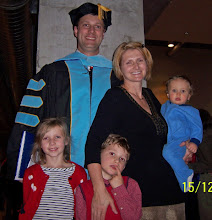In my nearly 20 years in independent schools, I have come to understand that we must provide our students and families with some sort of “value added.” That is, we need to offer our families some benefit or advantage that they are unable to get elsewhere. In this vein, the USJ Upper School is extraordinarily proud of the rigor of our curriculum, our high level of academic support, our history of placing 100% of our graduates in a college of their choice, and our record of extraordinary student achievement once our graduates attend college. A fairly large component of our rigorous curriculum and our students’ success in college can, in my opinion, be attributed to our Advanced Placement (AP) program, which is unmatched by any other school in West Tennessee. In case you are not aware, I’d like to point to the benefits of this program, both from a researched-based perspective, and from anecdotal evidence here at our school.
The Advanced Placement program is administered by an organization called the College Board, which is located in Princeton, NJ. Thirty-seven AP examinations are offered in 22 subject areas. Students who take AP classes do not earn college credit for taking the courses, but rather, earn credit through a national examination in each subject area. Each subject area exam is given on the same day across the world. The exams are comprised of a multiple choice section and some sort of “constructed” or “free response” section, and they are then holistically graded on a five-point scale (Clemmitt, 2006). Typically, college credit is granted for a score of three or higher (Byrd, 2007). Over 3,700 colleges and universities in the United States offer some kind of AP credit ("AP and IB," 2006; "AP," 2008; Rhodes, 2007).
In 2008, USJ students took 179 Advanced Placement examinations in 16 different subject areas. 79% of the scores on these AP exams were a three or higher. In fact, 57% of all graduates of USJ score a grade of three or higher some time during their high school career, and the vast majority of students take at least one AP course during their four years in the USJ Upper School.
In a general sense, the advantages of an AP program are clearly elucidated by the literature:
- AP courses better prepare students for college (Mathews, 2007; Melton, 2007; Rhodes, 2007).
- AP courses avail students the opportunity to earn college credit, which can save students money in college, allow them to graduate from college sooner, and/or take a wider variety of courses in college (Mathews, 2007)
- AP coursework aids high school graduates in gaining admission to college— to selective colleges, in particular (Byrd, 2007; Lord, 2000; Wilensky, 2007).
One of the strongest appeals of the AP program for parents is the evidence that AP courses prepare their children better for college than do “regular” courses (Lord, 2000; Mathews, 2007). Additionally, there is much stronger evidence to support the efficacy of AP programs than there is to support college joint-enrollment programs that have been offered by various high schools across the United States (Hughes, 2008; Karp, Calcagno, Hughes, Jeong, & Bailey, 2008). For example, in a 10-year longitudinal study of 67,000 students which was conducted by the National Center for Educational Accountability, students who took AP courses were two-times more likely to graduate from college than students who had not taken such courses (Melton, 2007). This study also showed that AP courses have been particularly helpful to Latino and African American students: Minority students who took these courses were three times more likely to graduate from college than students who did not take any AP courses (Melton, 2007). Students and teachers have also consistently attested to the strengths of these more rigorous programs (Matthews & Kitchen, 2007).
Certainly, taking an AP class affords students advantages in the college admissions process and provides a highly rigorous curriculum; but make no mistake -- a successful AP also program depends on quality teachers who are knowledgeable in their subject area (Byrd, 2007; Clemmitt, 2006; Lord, 2000). In this regard, I can attest that USJ’s faculty is as strong as any in the country. Currently, 12 out of 14 upper school AP teachers hold an advanced degree, and each teacher has won numerous awards and accolades. Too, the average teaching experience for USJ’s AP teachers is a remarkable 23 years. Finally, I should mention that 7 of our AP teachers have served as AP readers. This means that they have actually graded students’ AP exams from all over the county. Of course, this experience gives our AP teachers a unique understanding of what it takes for our USJ students to be successful on the exam.
In short, the AP program is but one portion of the “value” we believe USJ “adds” to your student’s high school experience. I believe that this value added exists even for students who never take an AP class. This is because the high standards that we set for AP courses help to create an overall atmosphere of excellence at the school. That is, even if students do not participate in the program, they benefit from a culture that values rigor and prizes a life-long love of learning.
